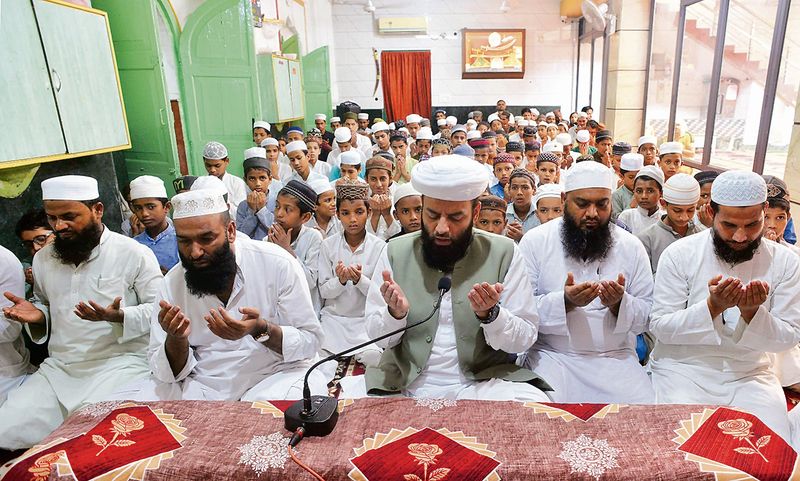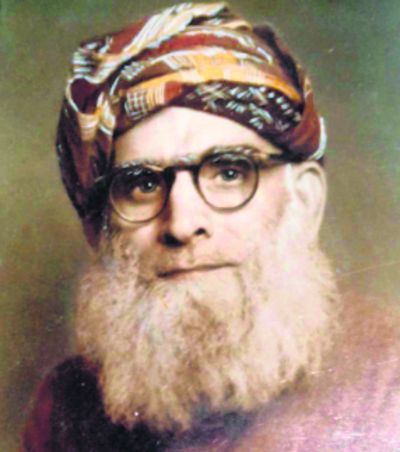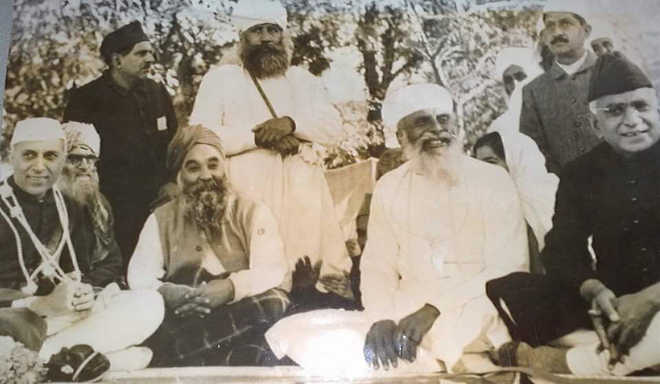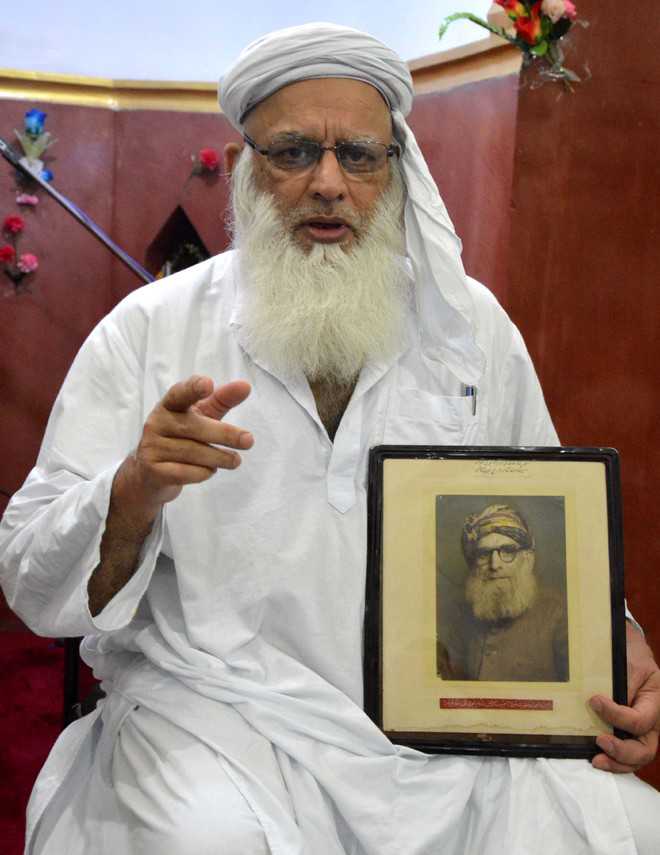Ludhiana, PUNJAB:

Prayers being offered at Jama Masjid in memory of Maulana Habib-ur-Rehman Ludhianvi. Tribune photo: Himanshu Mahajan
Ludhiana :
A prayer was organised at the local Jama Masjid in remembrance of Maulana Habib-ur-Rehman Ludhianvi, the man who stood up and raised his voice against the Divide and Rule policy of the British. Today, was his 68th death anniversary.

Maulana Habib-ur-Rehman Ludhianvi
Ludhianvi was one of the founders of Majlis-e-Ahrar-e-Islam and was the direct descendant of Shah Abdul Qadir Ludhianvi, who fought against the British colonial rule during the Indian Rebellion of 1857. In British records, he has been described as a fiery speaker who exercised considerable influence on people in the region.
In 1929, to oppose the idea of partition, Pandit Jawaharlal Nehru hoisted the Tricolour on the banks of Ravi for the first time and at the same time, Ludhianvi hoisted the same flag at Jama Masjid in Ludhiana in the presence of over 300 British policemen and was arrested.
“When the entire nation was suffering under the Divide and Rule policy of the British, it was he who stood up and raised his voice,” said Mohammad Usman Rehmani Ludhianvi, the Shahi Imam of Punjab, remembering his great grandfather.
Voices calling out “Hindu paani lelo, Muslim paani lelo” were common at the railway stations as there were separate pitchers of water for the Hindus and the Muslims. But in 1929, Maulana Habib-ur-Rehman Ludhianvi raised his voice against this and protested at Ghaas Mandi Chowk, Ludhiana and, with the help of his volunteers, broke earthen pots.
As a result, the British government was forced to install one common pitcher at all railway stations across the country giving the message “sabka paani ek hai”. In this activity, nearly 50 volunteers were arrested and sent to jail, he shared.
“My great grandfather decided to stay back in this part of Punjab although many of their relatives migrated to Pakistan. He was deeply pained by the Partition and later in order to help women to get back to their respective families, he had set up a ‘Phir Basau’ committee. Thousands of women returned to their parents under this exchange programme,” he said. Maulana, though not a poet, was well-versed in poetry and used to host poetic evening once a month, he shared.
Subhash Chandra Bose took refuge for three days at his home while on his way to Japan. Similarly, Bhagat Singh’s mother, brother and sister also stayed at his place during the freedom struggle.
Habib-ur-Rehman had to spend 14 years in prison in various places including Shimla, Mianwali, Multan, Ludhiana and Dharamsala.
He was confined in cold places during winters and hot ones in summer. He contracted a serious infection in jail due to which he died on September 2, 1956.
source: http://www.tribuneindia.com / The Tribune / Home> Ludhiana / by Manav Mander / Tribune News Service / September 03rd, 2024










